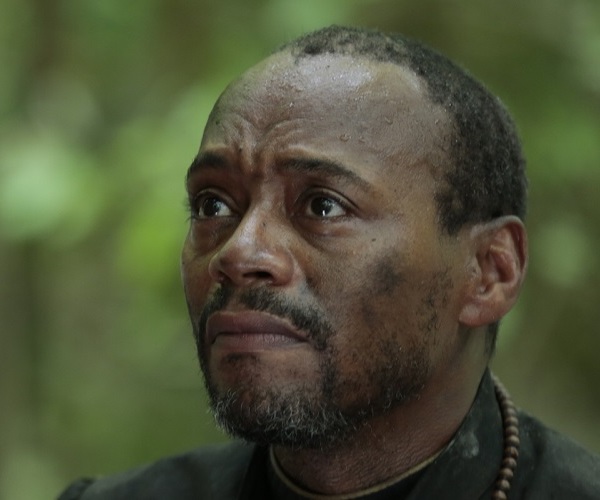Television Review: “Exterminate All the Brutes” — A Familiar, and Partial, History Lesson
By Sarah Osman
As an introduction to the progress of colonization and the horrors that white people have inflicted on BIPOC, Exterminate All the Brutes achieves its admirable mission.

A scene from the HBO documentary Exterminate All the Brutes.
As the cliché has it, history is written by the winners, and over the centuries colonialism has come out on top. So it should surprise no one that the countries and cultures dominated by whites have not been able to tell their stories. That repression continues to today, given that so many peoples are still squeezed under the thumb of white supremacy. History has not been forgotten because it was never really known.
Exterminate All the Brutes, a four part docuseries (HBO) from I Am Not Your Negro director Raoul Peck, explores how colonialism, in cahoots with white supremacy, has violently dominated cultures around the world. Peck draws on his personal perspective as a Haitian immigrant to move beyond just ticking off the crimes of colonialism; he also focuses on how the power of white supremacy continues to drive institutionalized racism today. For those who are not familiar with Walter Benjamin’s crucial insight that “there is no document of civilization which is not at the same time a document of barbarism,” Exterminate All the Brutes will be a moving if agonizing film about the dark side of history. However, for those who know something about past carnage, the documentary does not present any new facts or insights about the misuse of power.
As he did in his previous documentary I Am Not Your Negro, which focused on writer James Baldwin, Peck makes use of experimental techniques, but they are not as effective as before. The documentary does not go through history chronologically; each episode is centered around a specific theme. Throughout, Peck discusses various historical atrocities, such as the bombings of Hiroshima and Nagasaki, the Holocaust, the genocide of Native Americans, and the colonization of African countries. The director also incorporates pieces of film, literature, and other art that over the centuries promoted white supremacy and racism. Peck’s haunting narrative emphasizes the horror of each of these events, and he points out how their influence continues to empower Western injustice today. This deeply disturbing material presents a detailed and accurate view of historical actions that to this day are not often taught in schools.
So, there is no doubt that Exterminate All the Brutes will be added to various antiracism lists in schools, which often include books such as White Fragility. But the series’s overall impact is more impressionistic than it is revelatory. Those who have followed the political and intellectual fallout from Black Lives Matter will find that much of the documentary is essentially recycling. In fact, those who already accept that Confederate statues should be removed and the private prison system in American is a modern day form of slavery will be downright bored at times. The series doesn’t focus for very long on a specific moment in time or on concrete instances of colonization, and that means that Peck ends up bouncing all over the place, which makes for rather confusing viewing. Because history is propelled by contending forces and develops in jumps and starts, the decision to organize the series around themes turns out to be problematic. The past doesn’t follow the kind of neat progression you find in literature or art history (Neoclassicism preceded Romanticism). Hopping from one country to another or from one ruler to another means skipping huge chunks of cause and effect. For this reason, Exterminate All the Brutes may not be ideal for history classes or for those who wish to understand the strategies of colonization in meaningful detail; it is difficult to remember who the various leaders and politicians are as they flash by.
Like many documentaries, Exterminate All the Brutes also includes dramatizations, in this case between white settlers and Black and Indigenous people. Some of these reenactments are rather powerful and unsettling: others are awkward. Seeing white settlers blow the brains out of Black and Indigenous peoples comes off as gratuitous, graphic views of violence that aren’t necessary. In other moments, Peck himself promotes some dangerous stereotypes: he shows Black and Indigenous peoples attacking white people. There were some acts of rebellion, but it would be more empowering if the narrative examined how colonization truly affected Black and Indigenous peoples — and helped white people.
Strangely enough, Peck’s documentary does not incorporate any talking heads or interviews with historians of various perspectives. This is rather odd: there are a number of respected scholars who are BIPOC and have done extensive research on this topic. And wouldn’t it be compelling to hear from a variety of perspectives? Peck made himself the narrator of the series (he incorporates footage of his own upbringing in Haiti), privileging his point of view. But why be so limited? Surely Peck learned about the poison of colonialism from others? In terms of reducing accusations of bias, as well as adding intellectual depth, this decision does not benefit the series.
Exterminate All the Brutes was originally slated for 15 episodes. It’s a shame that it was cut down to four episodes. With the additional time Peck may have been able to tell the story in a more chronological fashion, delve further into why and how colonization impacts us today, and reveal more about the challenges of his own past. As an introduction to the progress of colonization and the horrors that white people have inflicted on BIPOC, Exterminate All the Brutes achieves its admirable mission. But crucial gaps remain. And that, ironically, is just how history is still being taught today.
Sarah Mina Osman is a writer living in Los Angeles. She has written for Young Hollywood and High Voltage Magazine. She will be featured in the upcoming anthology Fury: Women’s Lived Experiences under the Trump Era.
